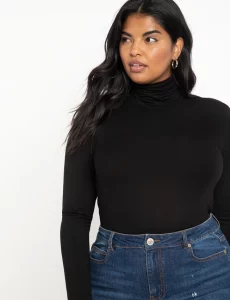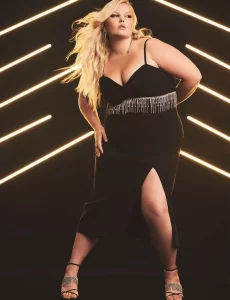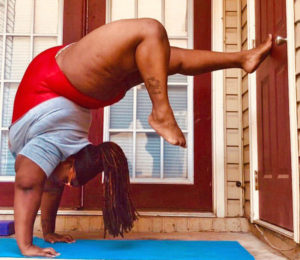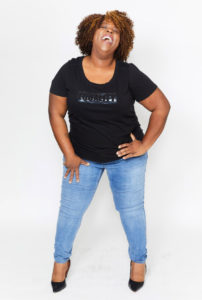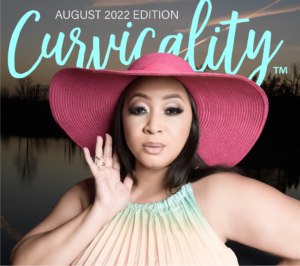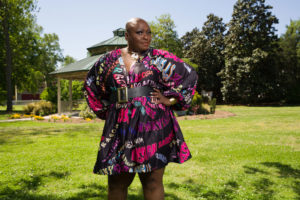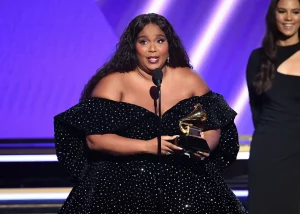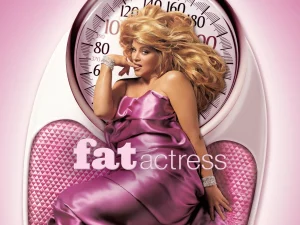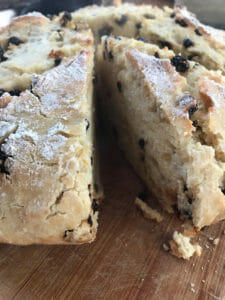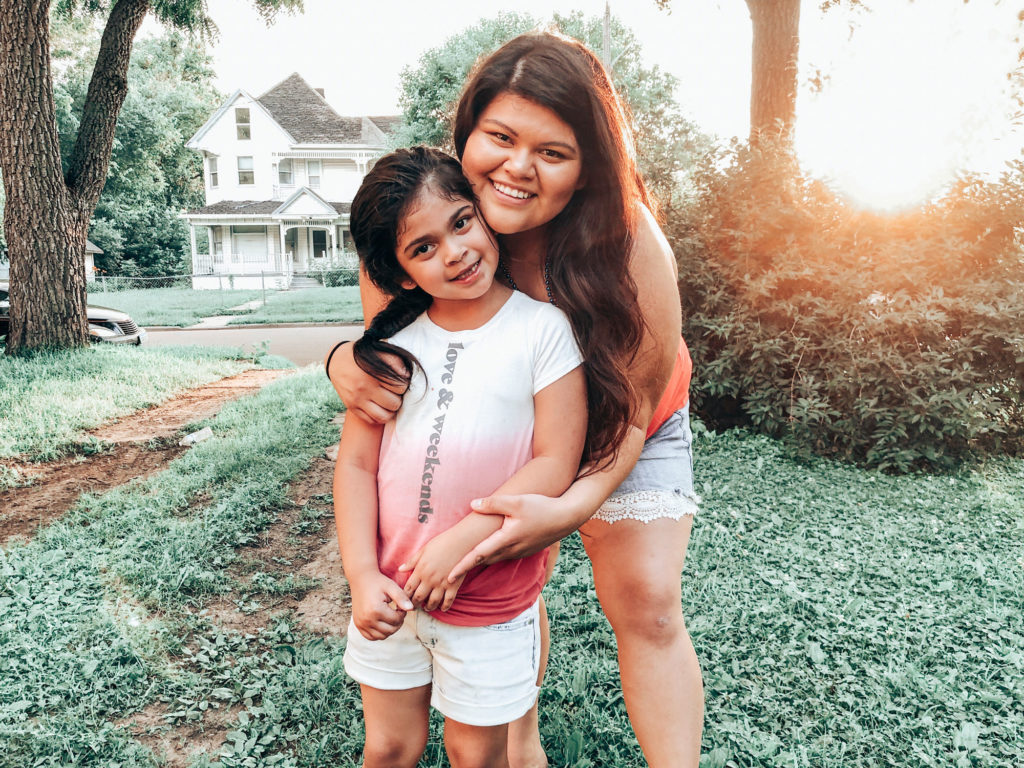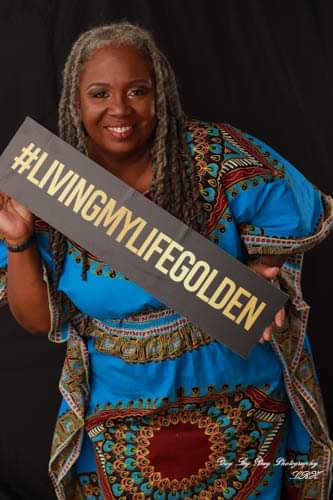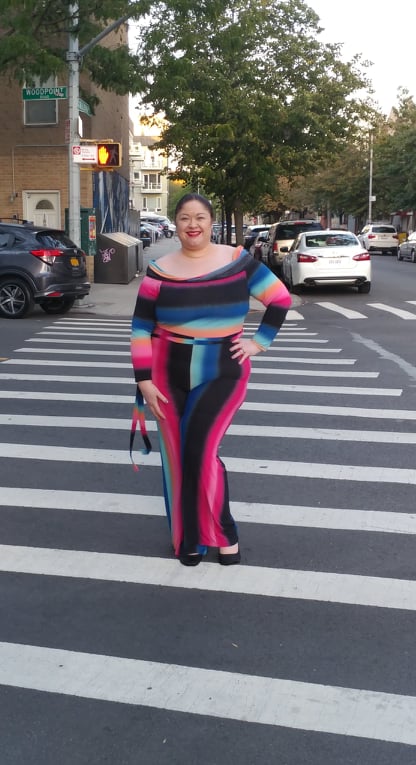We can’t control everything they see in the media, but we can teach them habits of healthy body image. Here are my top tips to get started.
Show Your Kids Different Body Types
Teaching our kids to love their bodies starts with showing them a wide range of body types and sizes. This instills an appreciation for, and understanding of, different body types. The more variety your child sees, the better.
You can start this process by showing your child different pictures on social media. In addition, you can show them pictures of yourself with friends of different body types.
Don’t Badmouth Bodies in Front of Children
Small children are sponges. They pick up and retain more than you think! We have to watch what we say in front of them. Refrain from talking negatively about your own body in front of your children, but also be careful how you talk about other people’s bodies. For example, we often comment on the bodies of celebrities and strangers we pass on the street without even realizing we are doing it, but kids notice those things.
As body image and eating disorder expert Dana Suchow once said:
“When children hear adults speak negatively about other people’s bodies what they end up hearing is, ‘I love you as long as you never look like that!’ Instead, show kids you’ll love them no matter what their body ever looks like, by refraining from body shaming others. You’ll set a great example that all bodies deserve respect, and you’ll put your child on a path towards body acceptance and self-love!”
Don’t Overreact to the Word ‘Fat’
It is inevitable that your child will eventually hear the word “fat.” They may even call you fat, but don’t overreact. It is a completely natural response to scold your kid for calling someone fat and tell them “that’s not nice,” but that only reinforces the idea that the word “fat” is a bad thing.
Instead, take a few minutes to tell your child that commenting on other people’s size isn’t a polite or respectful thing to do, regardless of what size they are. Teach them to look at people as a whole, not as just a body. And then consistently reinforce that idea every time your child talks about other people’s bodies.
Teach Your Child to Celebrate What Bodies Can Do
Our bodies are incredible and complex and deserve to be celebrated. But in this age of social media, it’s easy to get the idea that looks are the only thing that matters. Beauty Redefined has a great slogan that says, “My body is an instrument, not an ornament.” The idea is to turn our focus away from how our bodies look, and instead be grateful for — and celebrate — what they can do. (This is another technique that can help improve your own body positivity as well.)
Encourage Healthy Habits
Critics claim the body positivity movement glorifies obesity. This couldn’t be further from the truth. That said, it’s our responsibility to make sure our kids are active and eating reasonably healthy.
Encourage movement your child enjoys. That can be running, dancing, playing at the park — anything that gets them moving. Teach your child about the importance of drinking water and eating healthy foods, but don’t demonize sweets or snacks.
Be Aggressive in the Social Media World
Instagram and Facebook recently took a huge step in the right direction by announcing that users under the age of 18 will no longer see any content selling “fad” diet products (like skinny teas, weight-loss lollipops, etc.) or plastic surgery. Users over the age of 18 will have the option to report such posts and have them taken down. If your child is on social media and sees this kind of content, report such posts. Be aggressive.
Continue the Conversation
None of these things is a one-and-done-type of activity. You will have to reinforce these ideas to your children over and over again, and the conversations will get more complex as they get older. Don’t shy away from talking to them about tough topics like thin privilege, diet culture, fat phobia and eating disorders. Talk about the hard stuff. Let them ask questions and answer them the best you can.
We owe it to the next generation to have the hard conversations so that when they are adults, we won’t need a body positivity movement.
About the Author: Paige Fieldsted is the author of the highly acclaimed book Confessions from Your Fat Friend. She is also a blogger and body positivity advocate who believes all women deserve to love and appreciate the body they are in right now, and that people of all shapes and sizes are worthy of love and respect. Paige lives in Utah with her husband John, sons Mason and Logan, and Willy the pug. When she’s not writing, you can find Paige dancing and singing in the kitchen with her boys, doing yoga, hanging out with family or reading. Learn more about Paige here.
Our model is Drea Loera, and the photographer Hannah Del Angel.



